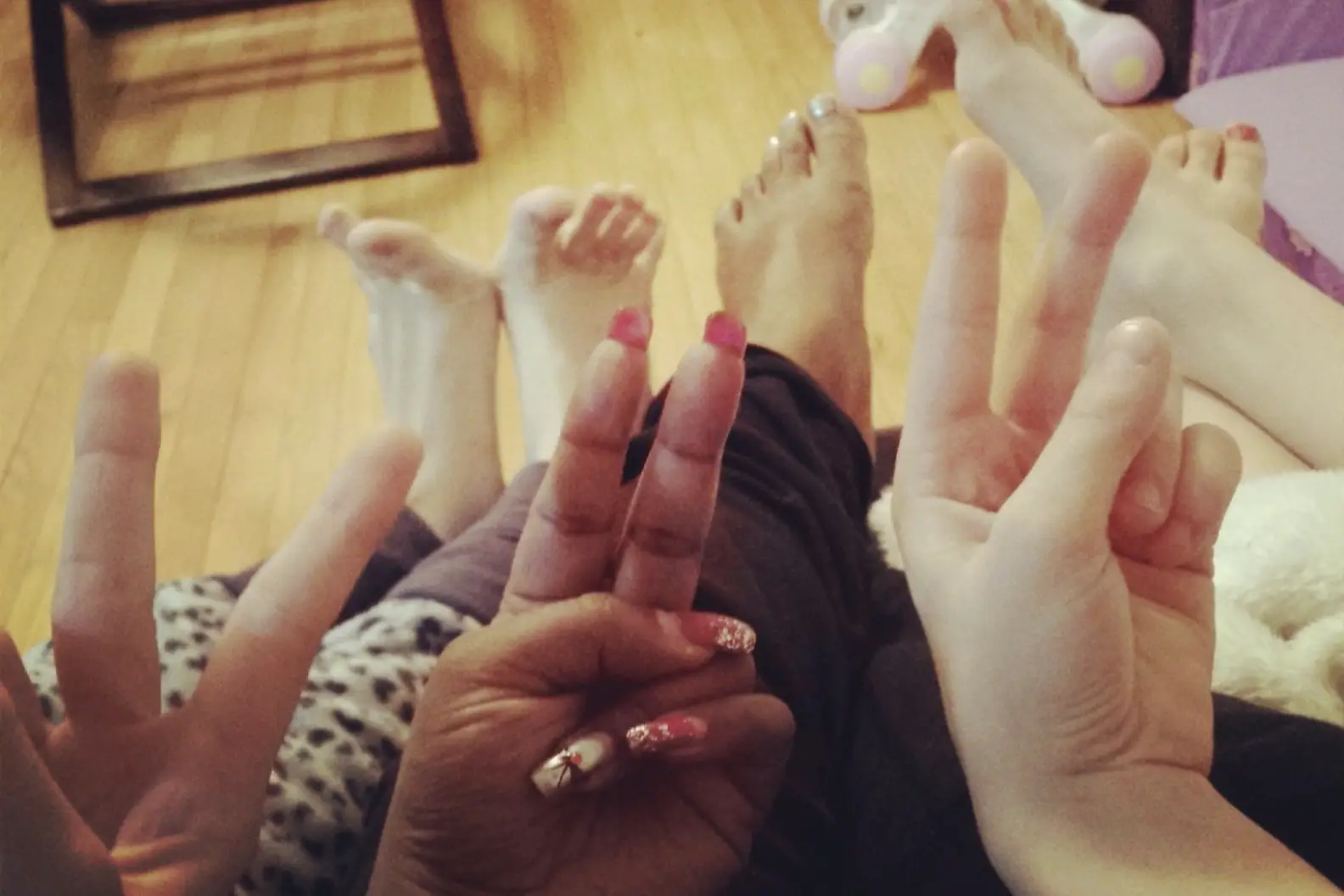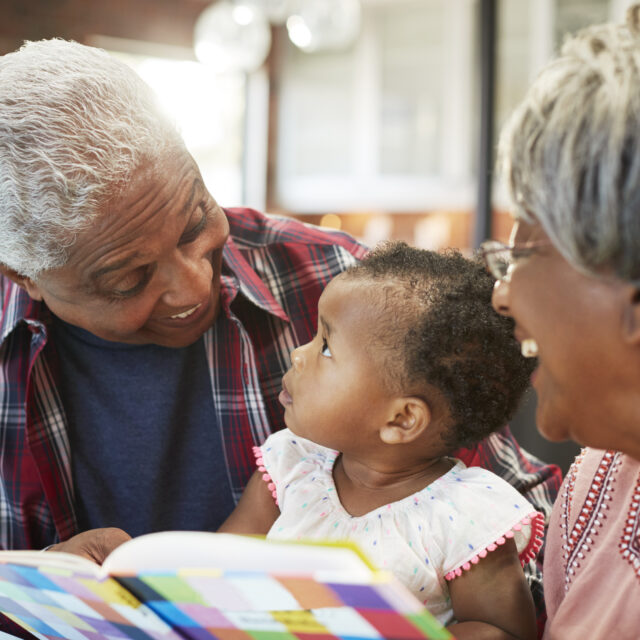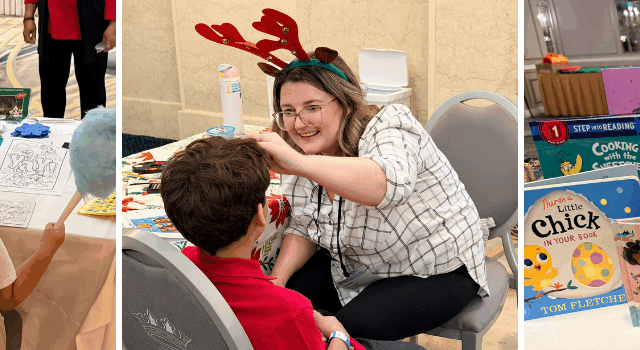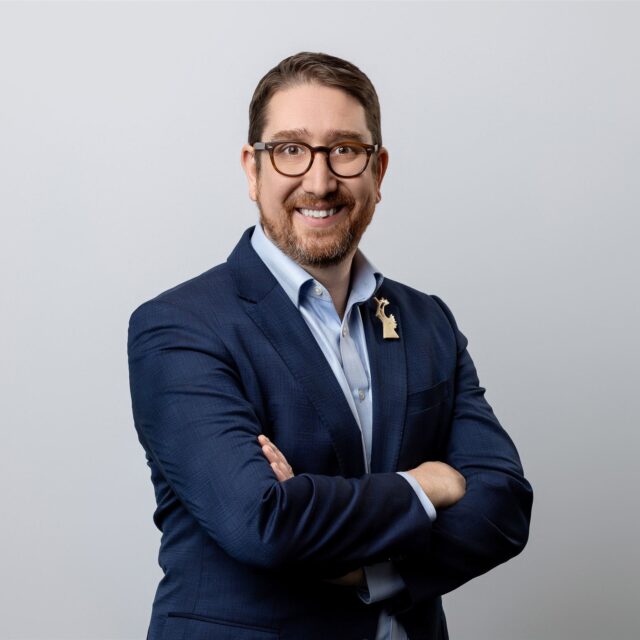Written by: Cheyanne Ratnam, former child in care, CaFdn Ambassador, S.S.W., B.S.W., M.S.W. Candidate
If one were to look in the dictionary or google the term ‘family’, the definition would be categorized under two different parts of speech: ‘noun’ or ‘adjective’. I would personally challenge the existing categories that ‘family’ is put under and dare to add a new one: ‘verb’.
Growing-up, I was born into a one parent household with an extensive extended family; my father and mother had separated by the time I was born. I grew-up calling my mother’s oldest brother ‘father’ because his children referred to him as ‘father’; it makes sense for children to mimic what is seen in their environment. My cousins were regarded as my siblings and the one person I actually referred to as my uncle (my mother’s other brother) was the person I had the fondest memories with. I was closer to him than anyone in my family, including my mother.
When I entered grade 3, my uncle was murdered in another country and I fell into a deep depression. It was the first time I openly said that he was like my father. I had never cried for anyone’s passing prior to his death. At times I even blamed his death on my absence and thought that if I had been halfway around the world, he would have been safe. Prior to getting the call about his death, I had woken-up screaming from a nightmare; coincidentally, my nightmare was about my uncle being in danger and we received the call a couple of hours later. Even at that age, I created my own meaning of family; family was never a noun for me, I was always making meaning of what family meant to me and to me he was my only ‘real’ family.

‘Creating’ and ‘making meaning’ of family has been a life long journey for me.
Although I am sure that my biological mother loves(ed) me, I grew-up in a very complicated and toxic environment where safety was not constant and chaos was the theme of my life. In grade 9, I entered the child welfare system; I won’t go into details but I entered the system and was given the choice to either stay or go back home – I chose to stay. This was a pivotal moment in my life and truly changed my life’s path. If I had stayed home, I do not think I would be alive today (past the age of 14) and my entry into the child welfare system was my first dose of stability as well as sense of safety.
My entry was also the first dose of the nurturing I have/had always longed for and needed. I had individuals who believed in me and encouraged me to keep working towards my dreams. I no longer had someone in my ear telling me ‘you are not enough’, ‘you ruined my life’, ‘you are dark, scrub your skin harder’, ‘you are stupid’, ‘I take pills because of you’, ‘you are a disgrace’, ‘don’t walk beside me’, ‘you’re a mistake’, etc. It was the point where I started to build up my trust in others and also the point where I started to create meaningful relationships with those who worked with me or the people I lived with.
Fast forward to the present day:
- I still have contact with the many faces I lived with in care
- Constantly reuniting with people who came into my life through the child welfare system
- I talk to pretty much most of the individuals who were in my life through being employed in the system
…and now to a point that some people would find ‘radical’:
I take the stance that all young people who come into the care system, regardless of age, are my spiritual siblings.
This is especially important to me because I am in the social work field and have a passion towards the betterment of services and programs that my siblings access. I also strongly feel that I am accountable to my siblings to keep my ethics and integrity in mind. This is a personal stance and I am sure that there might be others who grew-up in care who also take this stance as well.
In my life I have numerous siblings who identify themselves as such, in addition I have young people who also say ‘you’re like my mom’ or ‘you’re one of my moms’ and in turn I say ‘you’re my kid/youth’. There are also people who call me ‘cousin’ or ‘aunt’ in addition to other labels — none have any ‘biological relationship’ to me. I, personally, have more than my biological mother, I have appointed mothers…appointed by me.. If a person labels another as a ‘friend’, ‘sister’, ‘brother’, ‘aunt’, ‘mother’, ‘worker’, ‘staff’, ‘friend’ etc…that is the person’s choice.
Coming from the child welfare system, I know that many of us continuously are creating ‘family’ and many of us have multiple meanings for this word. For some of us, family is biological. For some of us family is biological but also non-traditional and unconventional. My greatest supporters are from my unconventional, non-traditional, yet imperfectly perfect ‘family’. Just like how certain things have seasons and/or allotted time-frames, the act of ‘creating family’ will look different as time passes. Family does not have to be biological. Family is created. Family is nurtured. The root of family should be love; it does not have to only be blood.
I had a beautiful experience recently. I visited one of my moms (who used to work in one of the group homes I lived in when I was younger and is only about a decade older than me); she is now a foster mom with her own family, including biological children. She has many designations in my life: she is my friend, mother, mentor, and colleague. While I was there, we had a family movie night and everything felt right. One of my favourite moments was when her foster children regarded me as their sister; they are more than a decade younger than me, yet due to our similar lives (their present and my past), we have a sense of connection. The next day, one of my ‘sisters’ was on the phone, speaking to her biological sister, and when she introduced me, she said ‘I am with Cheyanne, she is my sister’. Smiles.
Family is not a noun.
Family (v): To create and make meaning with people who you have a connection to/with. People who nurture, encourage, and promote positive growth. Those who believe in you and are there for you. People brought together through commonalities or family class. The coming together of people who build relationships rooted in respect, honesty, etc.
One does not have to be from the child welfare system in order to understand this. For example, my best friends, who are not from the child welfare system, are like my sisters. In our lives we will meet people who will touch our lives and we will touch theirs. In our lives we will meet people who become quite close to us, and who we will define as something other than (or in addition to) ‘friend’ (or another label.)
Family is more than a noun. Family is more than an adjective.
For many, family goes beyond something that you are born into; the traditional. Family goes beyond the ‘nuclear’ and family goes beyond ‘norms’ and sometimes, just because people are biologically related to a person, it does not mean that the person regards them as family.
Maybe someone in your life looks at you like family. Whether you are an active person in their life or not. You’d be surprised what you mean to people.
Family is created. Family is a verb. Family (v).
NOTE: Not everyone in the child welfare system has a positive experience like I was able to have and rarely is being in care a choice for young people; I wanted to acknowledge this so that those who are reading this do not assume that everyone has my experience; we can’t homogenize a whole population based on the experience of one or even the experiences of many.


